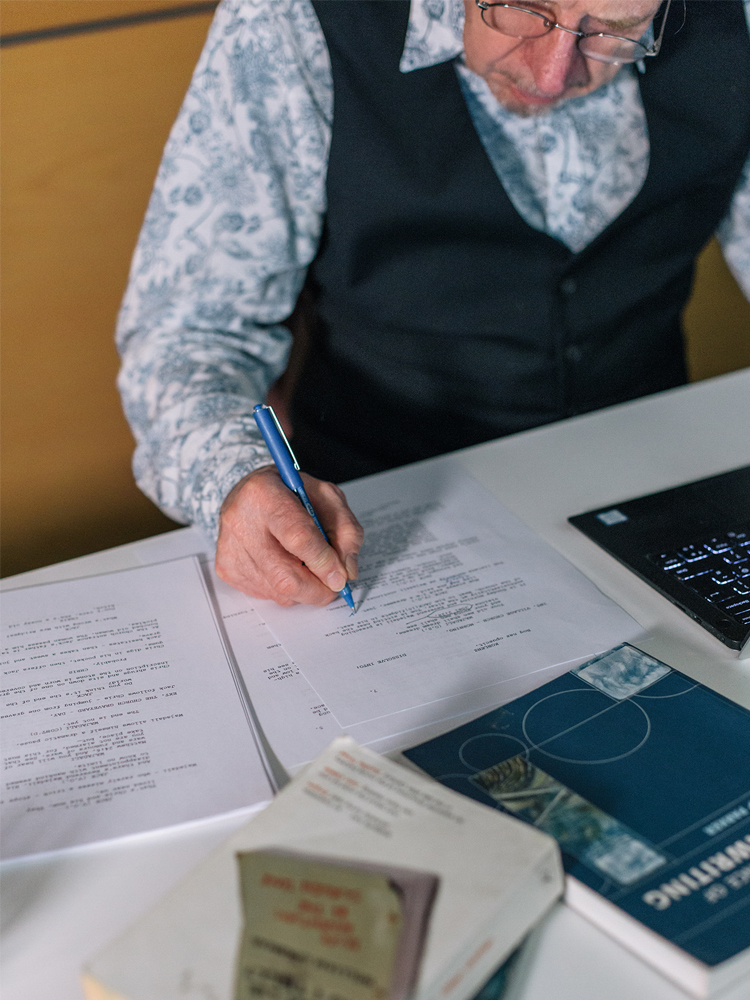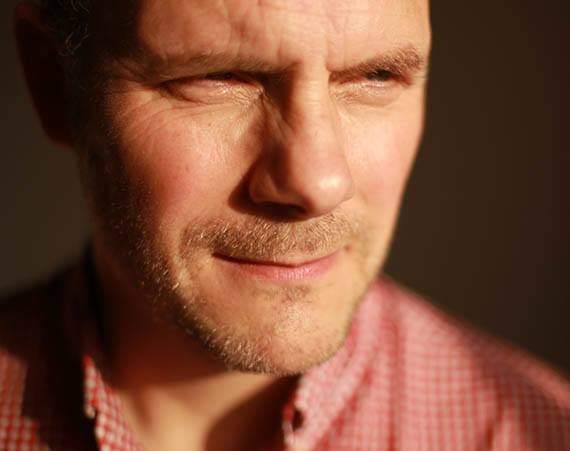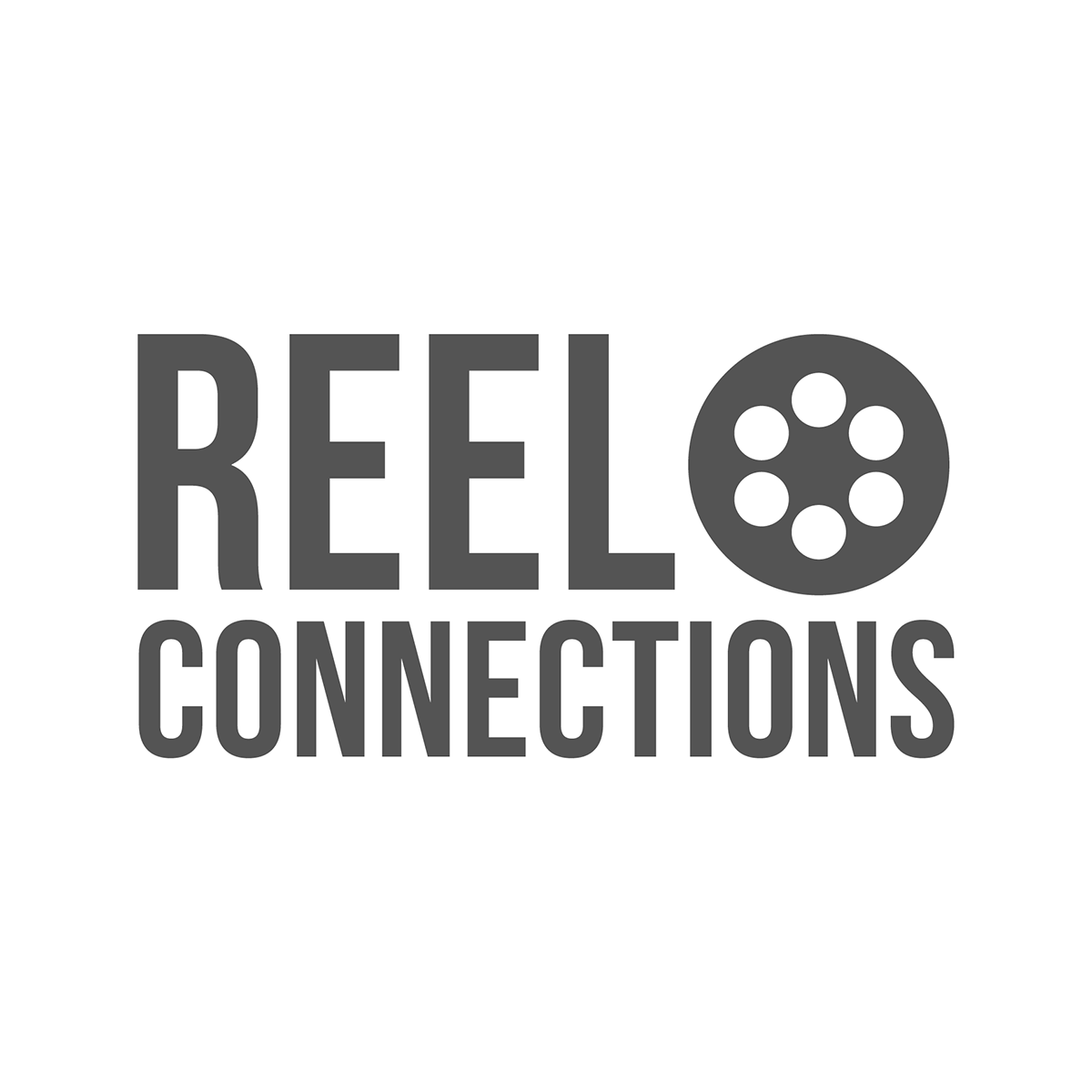
Making a Scene: How to Write a Successful Film Scene
Course dates: This course is currently closed for enrolment and will open again in autumn 2024.
Cost: £350
12-Week Online Course
Making a Scene devised and led by experienced tutor Dr Ian Nettleton, takes a different approach to most other introductory and intermediate screenwriting courses.
This course will give you the tools to analyse how every scene in a film should work as a dramatic unit. Through a variety of modules and learning methods, students will learn how to prioritise the visual, convey conflict between characters and advance the story through sound, dialogue and subtext.
On this course you will learn to…
- write a 2-3 page film scene that will fit into a feature film idea
- create plausible, emotionally complex characters
- storyboard a scene from beginning to end, focusing on the visual
- write a one-sentence and one-page outline of the bigger film idea
The course is suitable for anyone aged 18+ and for all abilities and experience. You’ll have the opportunity to interact with other fellow film enthusiasts/writers, and be part of a small community of writers that will help you to talk over ideas, problems, share writing and seek out solutions.
Whether you want to work on an existing script, or you’re just curious about how film scenes draw you in and make you want to keep on watching. All you’ll need is a love of film and the enthusiasm to learn how to write one great scene.


How it works…
The course is hosted by Thinkific, an easy-to-use online learning platform.
Scheduled content will be created and released every two weeks of the course, giving you time to work at your own pace, along with plenty of opportunities to post questions and chat with students and your tutor between sessions in the course forum.
We limit group sizes to a maximum of 25 participants, this means you’ll receive a much more tailored learning experience and feedback, and have an opportunity to get to know your fellow students.
Scroll down the page to view our courses FAQ, and if you have any further questions you can contact us here. You can also find our terms and conditions here.

Introduction from course tutor Ian Nettleton…
Course programme
Session One – The Idea
In this first part of the course, we will look at coming up with the film idea and how genre can help – genre just meaning the ‘type’ of film (horror, science fiction, romance, etc). We’ll also be looking at major turning points in feature films. During this session you’ll be asked to come up with a rough outline of a feature film. And don’t worry, these are the early stages of the course. The important thing is to start getting some ideas down, however rough they may be.
Session Two – The Hero’s Backstory
In this session, we’ll be thinking about what makes certain film characters so compelling to watch. What is it about the characters in our favourite films that engage us so much? Why do we enjoy watching them? Even in films that are more about plot than character, such as action adventures, why is it that we care about the central characters?
Session Three – The Character’s Journey and the Plot
In this session we are going to look at the impact of plot on character and we are going to dig deeper to see the kinds of things a character needs in order to engage a cinema audience. We will also look at the world of the character and how every character has a ritual that is attached to every action within that world. None of us do the same thing in the same way. It’s what makes us individuals and it is what makes film characters unique and believable.
Session Four – Breaking Your Film into Scenes
In this session, we are going to look at the short, three-page treatment for a film. Treatments are the way for a screenwriter to show their film idea in a quick, easily accessible way. This is the first version of what will become the screenplay. From looking at a treatment, we will be looking at how this can be broken down into scenes. We will then be looking at the differences between prose fiction and the screenplay.
Session Five – How Great Scenes Work and Dialogue
In this fifth part of the course, we will look at the eight elements of dialogue and how the best dialogue is indirect. We will also look at how the emphasis in any great scene should be on the visuals, not the dialogue, and how any two characters in a scene should have contrasting goals. I will be asking you to write a scene to release information dramatically and not overtly. We will then look at how to write a great scene – how a screenwriter must draft and redraft until both the visuals and dialogue act as clues to the true drama, rather than being overt. You will be asked to watch scenes that illustrate all these points, and you will be asked to rewrite a scene to maximise its dramatic effect.
Session Six – Storyboarding Your Scene and the Focus on the Visual
In this final session I will be asking you to work on your screenplay scene and to submit it for your fellow students to respond to. We will look at how you can make the very best of your dramatic scene, and we will look again at the main aspects of the course as a whole. In the latter part of this session, we will be looking at storyboarding. The point of this is to emphasise the importance of the visual when writing a screenplay.
Your tutor…
Ian Nettleton
Ian Nettleton is an award-winning writer who has worked as a lecturer in creative writing for over twenty years. He has taught screenwriting locally in his hometown of Norwich, and to undergraduate students for the Open University. He also teaches on the MA in Creative Writing for the Open University and for the National Centre for Writing.
Ian has written and presented for BBC Pebble Mill (Front Room), appeared on Open Book on Radio 4 and had short stories and flash fiction published in a number of anthologies. He was runner-up in the Bath Novel Award 2014 and the Bridport Prize for Novels Award 2014 and his novel, Out of Nowhere, was winner of the Bath Novel Award 2023.

Image Credit: Martin Figura
Courses FAQ
When does this course run?
You can find the course dates at the top of the page. The course content will be released every two weeks, giving you plenty of time in between to complete any tasks.
When can I access the course content?
You’ll be able to access the first session on the start date of the course, and then new sessions will be released every two weeks for the duration of the course.
Do I have to attend at a specific time?
No, even though this is a scheduled course you can do the modules in your own time, with new content released every two weeks as pre-recorded videos and accompanying resources.
What level is the course?
All of our courses are designed for a range of abilities, from beginners to those with a bit more experience. Our courses are suitable for ages 18+
If you are unsure and want to ask us, or the course tutor, a question please contact us at info@reelconnections.co.uk
Is there tutor interaction?
Yes, on all of our scheduled courses your tutor will be available on the discussion boards (as part of the Thinkific platform) to answer any questions and provide feedback. They will aim to do this at least once a week.
Each course has its own dedicated discussion board under each session, where you can share questions and your work with other participants – although this is not compulsory!
How many other participants will there be on the course?
One of the benefits of our scheduled courses is we limit group size to a maximum of 25 participants, this means you’ll receive a much more tailored learning experience and feedback, and have an opportunity to get to know your fellow students.
Can I join in from anywhere in the world?
Of course! Even though Reel Connections are based in the UK, we welcome international participants – this is one of the benefits of learning online.
Course payment is set in GBP, but when you pay it will convert to your own currency.
How do I access the course?
Our online courses are hosted by Thinkific, this is where you will go to sign up, and you’ll receive all the information you need ahead of the course’s scheduled start date.
You will also get lifetime access to the course, so you can return to sessions and information at any time. Please note our tutors will only be available for feedback for the duration of the scheduled course.
How long should I expect to spend on the course each week?
We would suggest setting aside 2 hours a week as a minimum, but there will be opportunities to spend more time on each session or task.
What format is the course delivered?
The course content will be released as videos, and accompanying written content and reading materials, as well as other audio and video based resources. This will be released via the Thinkific platform. Find out more about the Thinkific student experience here.
What internet connection or technology will I need?
To get the most out of the sessions you will need to have a good and reliable internet connection – Thinkific recommends a broadband internet connection with a minimum speed of 5Mbps.
You will access the Thinkific platform (and course) via a web browser. The platform is fully mobile responsive – so you will be able to access your course from any phone, tablet, laptop, or desktop computer that is connected to the internet.
We recommend making sure your browsers are up to date, and these are the browsers which are supported…
Desktop: Chrome, Firefox, Safari, Microsoft Edge
Mobile: iOS Safari, Chrome, Samsung Internet
Please note that Thinkific does not currently support Internet Explorer. Find out more here
Do you offer refunds?
Course bookings can be refunded up to 14 days after payment has been processed, unless the course begins within this 14 day period.
After these 14 days, we cannot offer refunds unless we are able to fill your course place through a waiting list. If there are extenuating circumstances as to why you cannot do the course please contact us to discuss at info@reelconnections.co.uk.
You can find our full Terms & Conditions here.
